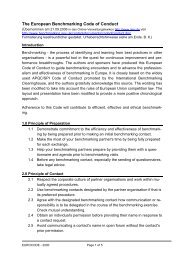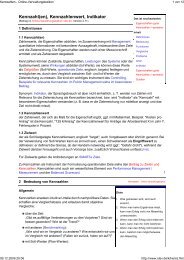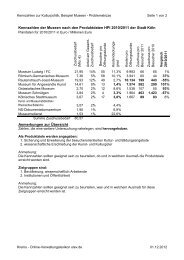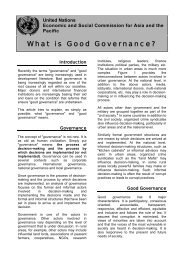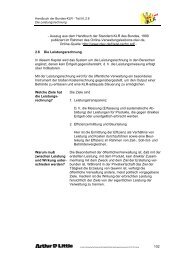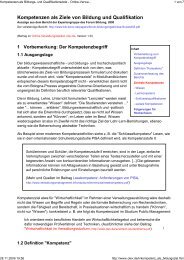Strategy Survival Guide
Strategy Survival Guide
Strategy Survival Guide
Create successful ePaper yourself
Turn your PDF publications into a flip-book with our unique Google optimized e-Paper software.
<strong>Strategy</strong> <strong>Survival</strong> <strong>Guide</strong> Version 2.1<br />
Prime Minister’s <strong>Strategy</strong> Unit<br />
home | strategy development | strategy skills | site index<br />
<strong>Strategy</strong> Skills > Appraising Options<br />
Rationale for government intervention<br />
> in practice<br />
Identifying the rationale for government intervention is crucial to deciding when – and in what ways –<br />
governments need to get involved.<br />
The current draft of the HM Treasury Green Book identifies two basic justifications for government<br />
intervention:<br />
• The enhancement of economic efficiency by addressing problems with the operation of markets and<br />
institutions<br />
• The achievement of a social objective, such as promoting equity.<br />
The existence of a problem does not in itself justify government intervention. Government itself does not<br />
function perfectly, and any form of government intervention may impose costs. This means that even when<br />
markets do not work effectively to deliver desirable goals, government must compare the costs of failing to<br />
deliver those goals against the potential costs of the intervention.<br />
There are four key stages to justifying the rationale for government intervention:<br />
1. Identify the set of policy goals to be achieved<br />
2. Identify why these goals may not be delivered without government activity<br />
3. Identify what actions are available to government in order to deliver the desired outcomes<br />
4. Consider whether the costs of government intervention are justified.<br />
1. Identify the set of policy goals to be achieved:<br />
This involves an assessment of the government’s strategic goals and objectives, and the way in which they<br />
are translated to individual policy areas.<br />
2. Identify why these goals may not be delivered without government activity:<br />
Economists identify two broad types of reason why government activity may be required:<br />
(I) Market failure, of which there are several types:<br />
• Imperfect competition (market power). Economic theory demonstrates efficient outcomes will be<br />
delivered only where markets are actually or potentially competitive. As soon as there is an element<br />
of monopoly (on the side of the seller) or monopsony (on the side of the buyer) power that can be<br />
exercised, a less efficient outcome will occur. This may arise because of the natural characteristics<br />
of the market (e.g. very high costs of entry) or through strategic behaviour by incumbents (e.g.<br />
predatory pricing).<br />
• Externalities. Externalities result when a particular activity produces benefits or costs for other<br />
activities that are not directly priced into the market. When this happens, the amount of the particular<br />
activity that takes place will generally be inefficient. Externalities can be "positive" or "negative". An<br />
example of a positive externality is the spill over effect into other areas that can occur as a result of<br />
research and development activity. A company or research institution will generally decide its level of<br />
R&D on the basis of the benefits that it can capture – ignoring benefits that might occur elsewhere.<br />
An example of a negative externality is pollution of the environment. A company or individual may<br />
reduce its own costs by failing to implement pollution controls, but this will generally impose costs on<br />
those affected by the pollution..<br />
<strong>Strategy</strong> <strong>Survival</strong> <strong>Guide</strong> – <strong>Strategy</strong> Skills<br />
Page 178



